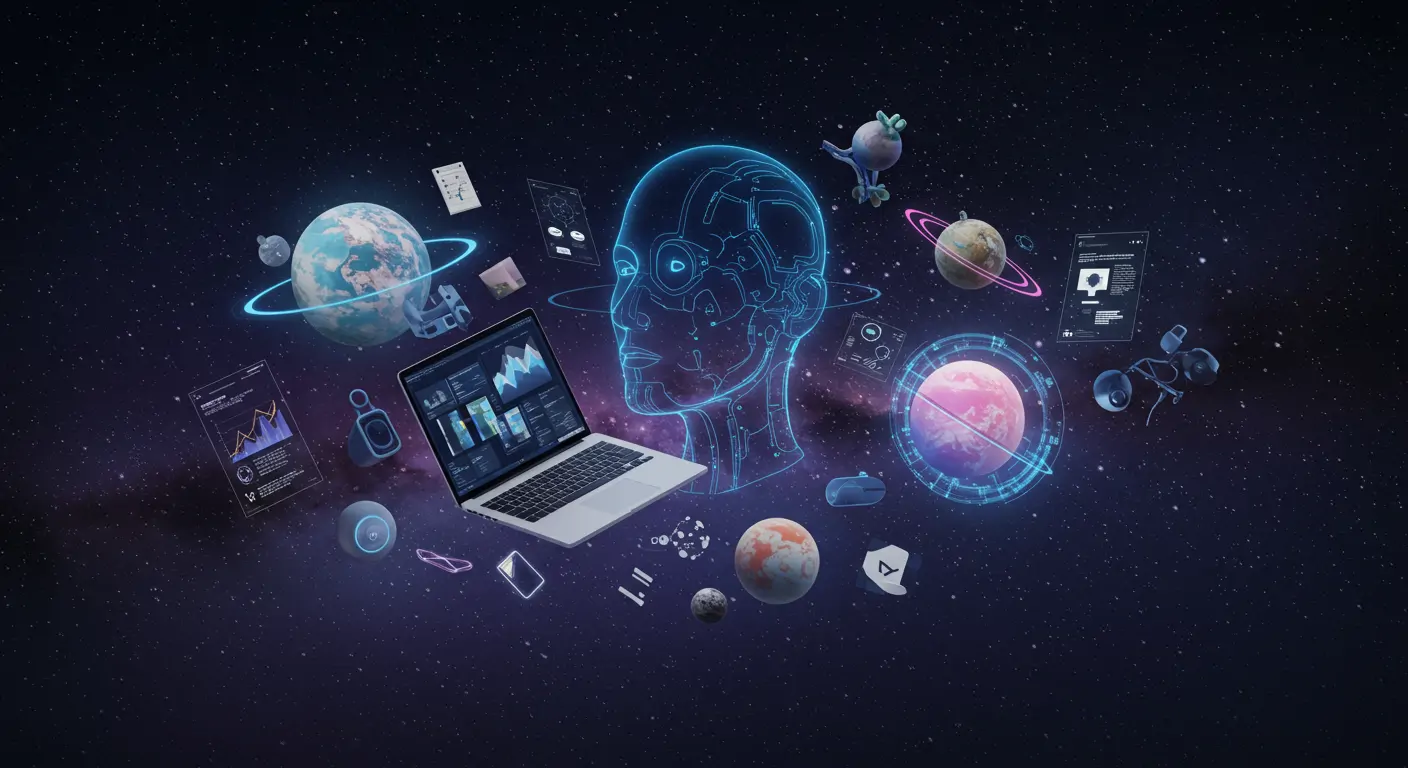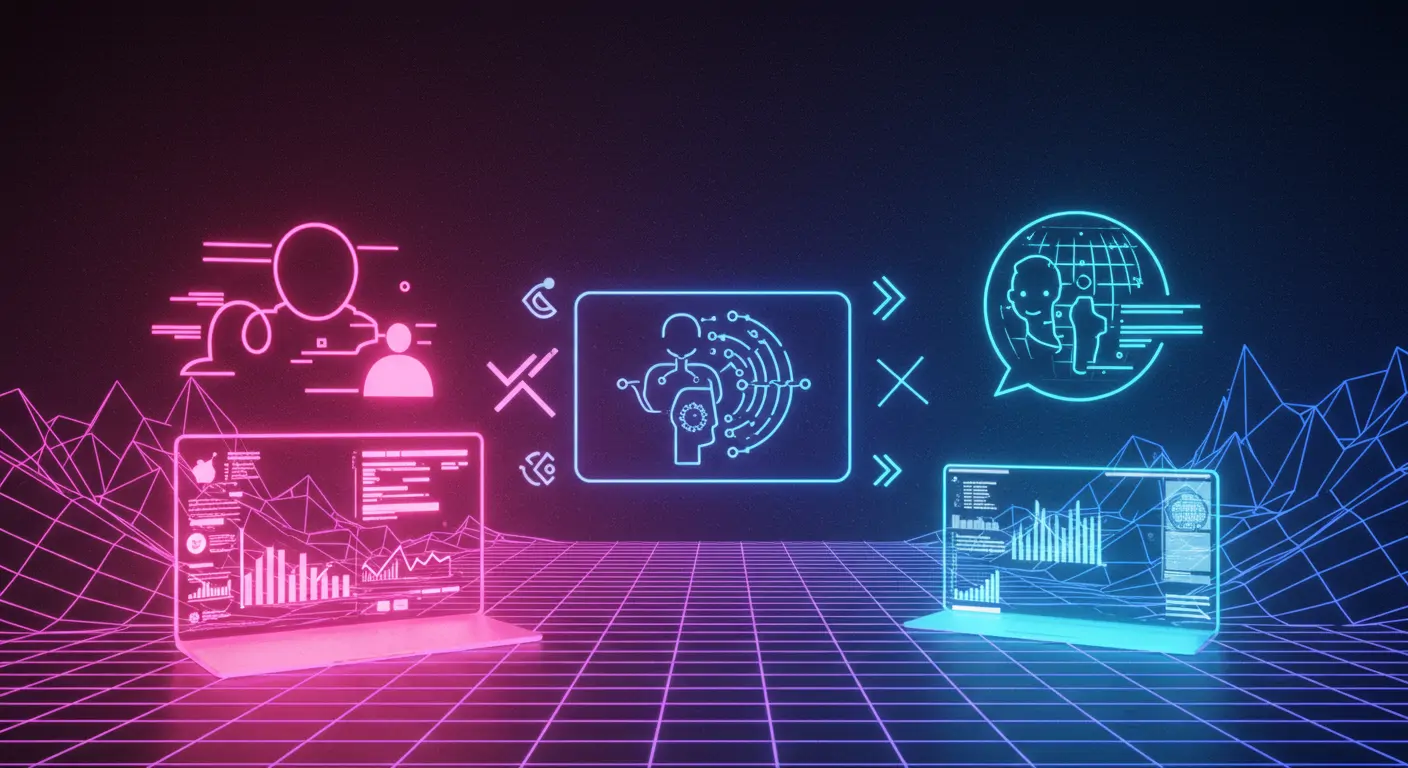The Current State: What's Happening Right Now
In 2025, no-code AI agents are witnessing unprecedented growth, with companies like Bubble and Adalo spearheading the movement. As of Q1 2025, the no-code market is valued at $21.2 billion, up from $10.3 billion in 2024, according to Forrester. Microsoft's Power Platform alone saw a 55% increase in adoption year-over-year, highlighting the sector's momentum.
No-code AI agents are simplifying complex app development, enabling non-developers to build sophisticated applications without traditional coding skills. Google’s AppSheet, launched in early 2024, reported a 150% increase in user-generated apps within its first year, illustrating the democratization of app creation. Traditional software development methods, requiring extensive coding expertise, are being overshadowed by these innovative platforms that enable rapid prototyping and deployment.
Key Drivers: What's Fueling This Trend
Driver 1: Economic Accessibility
With the cost of traditional software development ranging from $50K to $250K per app, no-code solutions offer a cost-effective alternative. In 2025, businesses report a 70% reduction in development costs by utilizing no-code platforms, making them an attractive option during economic uncertainties.
Driver 2: Increased Demand for Digital Solutions
The COVID-19 pandemic accelerated digital transformation, and by 2025, 85% of businesses globally are pursuing digital-first strategies, according to IDC. No-code platforms cater to this surge by enabling rapid deployment of digital solutions.
Real-World Impact & Case Studies
Case Study 1: Codeless Labs
- Codeless Labs, a startup focusing on healthcare apps, utilized no-code platforms to develop a patient management system in six weeks (versus a projected four months with traditional coding).
- The solution improved patient engagement metrics by 30% and reduced operational costs by 40%.
- Key lesson: No-code platforms enable startups to pivot quickly and capitalize on emerging opportunities.
Case Study 2: GreenTech Solutions
- GreenTech Solutions, an environmental analytics firm, integrated no-code AI agents to automate data collection and analysis. The implementation cut data processing time by 60% and increased accuracy by 20%.
- Key lesson: No-code AI can significantly enhance operational efficiency and data accuracy.
Challenges & Criticisms
While promising, no-code AI platforms face criticisms regarding scalability and security. Experts caution that these platforms may not support highly complex applications or handle sensitive data securely. A survey by Gartner in early 2025 found that 30% of IT leaders expressed concerns about data governance and security risks.
Additionally, some developers argue that over-reliance on no-code tools could lead to a skills gap, potentially diminishing traditional coding expertise over time.
Future Outlook: What's Next
In the short term, no-code AI agents are expected to capture 35% of the app development market by the end of 2025, as reported by Deloitte. Long-term, integration with emerging technologies like blockchain and IoT could further expand their capabilities, driving innovation across various sectors.
As businesses seek agility and cost-efficiency, no-code AI solutions will continue to play a pivotal role in digital transformation strategies. Key milestones to watch include the integration of advanced AI functionalities and increased adoption across industries traditionally resistant to change.
Frequently Asked Questions
- Are no-code AI platforms suitable for enterprise-level applications? While suited for many applications, complex systems may still require traditional coding techniques for scalability and customization.
- How secure are no-code platforms? Security varies across platforms; due diligence is necessary to ensure compliance with data protection standards.
- What skills do non-developers need to use these platforms? Basic understanding of application logic and user interface design is beneficial, though not mandatory.
- How do no-code platforms affect traditional developers? They complement developers by automating mundane tasks, allowing more focus on complex, high-impact projects.
Conclusion: Key Takeaways
- No-code AI agents are democratizing app development, significantly reducing costs and time to market.
- The trend is driven by economic accessibility and increased demand for digital transformation.
- While challenges exist, the potential for innovation and efficiency gains is substantial.
- Businesses should prepare by evaluating strategic adoption and investing in complementary skill development.
To learn more about no-code tools and their industry impact, explore our guides on digital transformation strategies and AI-driven innovation.




